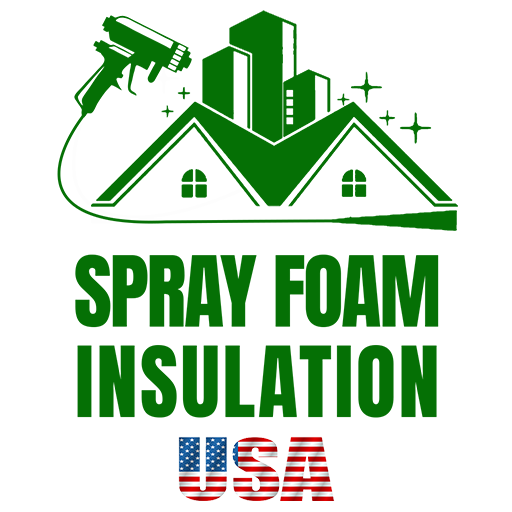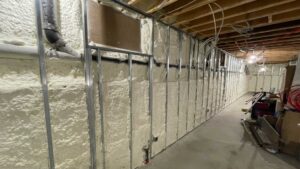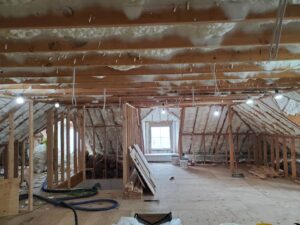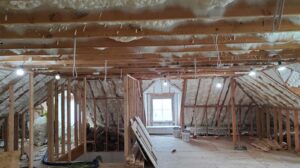When it comes to commercial building insulation, the goal is simple: maximize energy efficiency and occupant comfort while minimizing costs. Whether you own a small retail shop or a sprawling office complex, the right insulation can significantly reduce your energy bills, keep the indoor environment comfortable year-round, and contribute to a healthier planet by cutting down on carbon emissions.
- Quick Answer for Busy Readers:
- Importance: Insulation is crucial for reducing energy consumption and improving comfort.
- Energy Efficiency: Proper insulation leads to substantial savings on heating and cooling costs.
- Comfort: Good insulation eliminates hot or cold spots, maintaining a steady temperature indoors.
Choosing the optimal insulation solution depends on several factors, including your building’s location, design, and specific heating or cooling needs. It’s not just about slapping some material in the walls; it’s about creating a smarter, more energy-efficient building that stands the test of time.
Why bother? Because, at the end of the day, investing in quality insulation is investing in your building’s future and the well-being of those who use it every day. Plus, considering the push towards greener, more sustainable building practices, being ahead in energy efficiency can also enhance your property’s value and appeal.

Keep reading to dive deeper into how you can select the most suitable type of insulation for your commercial property, understand its array of benefits, and navigate cost considerations effectively.
Types of Commercial Building Insulation
When it comes to insulating commercial buildings, there’s no one-size-fits-all solution. Each type of insulation has its unique benefits. Let’s break down the options: Fiberglass, Cellulose, Spray Foam, Polyiso, XPS, and Mineral Wool.
Fiberglass Insulation
Fiberglass is like the cozy sweater of the insulation world. Made from fine glass fibers, it’s a popular choice because it’s cost-effective and easy to install. Think of it as filling your building’s walls with a fluffy layer that traps heat. However, it’s important to seal all air leaks for it to be most effective.
Cellulose Insulation
Cellulose is the eco-warrior of insulation. Made from recycled newspaper and treated with fire retardants, it’s both green and safe. It’s excellent at fitting around obstacles in walls, ensuring no nook or cranny is left uncovered. Plus, it’s known for its superior soundproofing abilities.
Spray Foam Insulation
Spray foam is like the superhero of insulation, expanding to fill gaps and creating an airtight seal. It comes in two types: open-cell for soundproofing and closed-cell for moisture resistance. Spray foam might cost more upfront, but its energy-saving powers can make it worth the investment.
Polyiso (Polyisocyanurate) Insulation
Polyiso is the high-tech option, boasting the highest R-value per inch of thickness. This makes it a great choice for keeping temperatures steady, whether it’s hot or cold outside. It’s also friendly to the environment, with options that use eco-friendly blowing agents.
XPS (Extruded Polystyrene) Insulation
XPS is like the sturdy, reliable friend who’s always there for you. It offers good thermal resistance and moisture protection, making it ideal for areas prone to dampness. Plus, it’s tough enough to be used under concrete slabs or on exterior walls.
Mineral Wool Insulation
Mineral wool, also known as rock wool or slag wool, is like the protective older sibling of the insulation family. It’s not only great at insulating but also provides excellent fire resistance and soundproofing. It’s a bit harder to install but well worth the effort for its durable qualities.
Choosing the right type of commercial building insulation depends on your building’s specific needs, climate, and budget. Whether you’re looking for the eco-friendliness of cellulose, the airtight seal of spray foam, or the fire resistance of mineral wool, there’s an insulation type out there for your project.
Understanding these options is the first step towards creating a more energy-efficient and comfortable commercial space.
In the next section, we’ll explore the benefits of continuous insulation and why it’s becoming a standard in energy-efficient building design.
Benefits of Continuous Insulation
When we talk about making commercial buildings better, continuous insulation (CI) is a game-changer. It’s like wrapping your building in a cozy blanket that keeps the inside comfortable and protects it from the outside world. Let’s dive into why CI is so important.
Energy Efficiency
First up, energy efficiency. Continuous insulation works around the clock to keep the heat out during summer and in during winter. This means your heating and cooling systems don’t have to work as hard. It’s simple: less energy used equals lower energy bills. In fact, buildings with CI can see significant reductions in energy consumption. This isn’t just good for your wallet; it’s great for the planet too.
Occupant Comfort
Next, let’s talk about comfort. CI helps maintain a steady temperature throughout your building, eliminating those pesky hot and cold spots. Whether you’re in the corner office or the break room, you’ll feel just right. And because CI reduces air leakage, you won’t feel those drafts that make you reach for a sweater.
Moisture Control
Moisture can be a building’s worst enemy, leading to mold, mildew, and even structural damage. CI acts as a barrier, keeping unwanted moisture out. This means a healthier environment for everyone inside and less worry about repairs caused by moisture damage down the line.
Fire Resistance
Safety first, right? Many continuous insulation materials are designed with fire resistance in mind. This means they can help slow the spread of fire, giving people more time to evacuate and reducing damage to the building. It’s an added layer of protection that can make a big difference in an emergency.
So, there you have it. Continuous insulation isn’t just about saving energy; it’s about making commercial buildings safer, more comfortable, and more durable. It’s an investment in your building’s future, ensuring it stands strong and efficient for years to come.
In the next section, we’ll tackle the costs associated with insulating commercial buildings. Understanding the upfront costs versus the long-term savings will help you make informed decisions about your insulation project.
Cost Considerations for Insulating Commercial Buildings
When it comes to insulating commercial buildings, understanding the costs involved is crucial. It’s not just about the price you pay today, but also about how much you can save in the future. Let’s break it down into three main areas: Material Costs, Installation Costs, and Long-term Savings.
Material Costs
Different insulation materials come with different price tags. For example, Spray Foam might be on the higher end of the spectrum due to its superior air sealing properties and R-value, but it offers excellent energy efficiency. Polyiso and XPS are also popular choices for continuous insulation, offering a good balance between cost and performance. On the other hand, materials like Fiberglass and Cellulose are generally more affordable upfront but may not provide the same level of thermal resistance or durability.
- Spray Foam: Higher upfront cost, but provides excellent air sealing and insulation.
- Polyiso/XPS: Mid-range cost, good thermal performance.
- Fiberglass/Cellulose: Lower upfront cost, but potentially higher long-term costs due to lower R-values.
Installation Costs
The complexity of your project can significantly impact installation costs. Custom designs or hard-to-reach areas might require specialized equipment or more labor, increasing the price. However, the expertise of the installation team is a critical factor in ensuring that your insulation performs as expected. Skilled professionals might cost more upfront, but the investment ensures your insulation is installed correctly, maximizing its effectiveness and longevity.
- Spray Foam: Requires professional installation, higher labor costs.
- Panel Systems (Polyiso/XPS): Easier to install, but may still require professional help for large projects.
- Batts (Fiberglass/Cellulose): Potentially DIY, but professional installation recommended for best results.
Long-term Savings
This is where insulation shows its true value. Properly insulated buildings require less energy for heating and cooling, which can lead to significant savings on utility bills. For instance, buildings that have installed Spray Foam insulation have seen a noticeable reduction in energy consumption. Investing in high-quality insulation pays off over time, not only in reduced energy costs but also in increased comfort and building integrity.
- Energy Efficiency: Reduces the need for heating and cooling, lowering utility bills.
- Durability: High-quality insulation can last for decades, reducing the need for repairs or replacement.
- Environmental Impact: Efficient buildings contribute less to greenhouse gas emissions.
In conclusion, when considering insulation for your commercial building, look beyond the initial costs. The right insulation can lead to substantial long-term savings, making it a wise investment in the future of your building. Always consult with professionals to determine the best insulation type for your specific needs, taking into account your climate, building design, and budget.
In the next section, we’ll explore how to select the right insulation for your commercial building, considering factors like climate, building design, and specific needs.
Selecting the Right Insulation for Your Commercial Building
Choosing the right insulation for your commercial building is a big deal. It’s about keeping your energy costs down and making sure everyone inside is comfortable, no matter the weather outside. Let’s break down how to make the best choice for your building.
Climate: Where your building is located makes a big difference. If you’re in a cold area, you’ll need insulation that keeps heat in. In warmer climates, you want to keep the heat out. Some materials work better in certain climates than others.
Building Design: The design of your building affects your insulation choice. Big windows, high ceilings, and the overall shape can change what’s best for you. For example, spray foam can fill in odd shapes and corners, making it a great choice for unique designs.
Specific Needs: Think about what’s most important for your building. Do you need to control moisture because of your location? Are you looking for insulation that also helps with fire resistance? Each type of insulation has its own set of benefits besides just controlling temperature.
R-Value: This is a big one. The R-value tells you how well insulation can stop heat from passing through it. Higher R-values mean better insulation. But remember, more isn’t always better. The right R-value for your building depends on your climate and the part of the building you’re insulating.
Sustainability: We all want to take care of our planet. Some insulation materials are greener than others. For example, cellulose is made from recycled paper and is very eco-friendly. Choosing sustainable materials can help reduce your building’s carbon footprint.
There’s no one-size-fits-all answer. What works for a small retail shop might not be the best for a large warehouse. Think about your building’s specific needs, and don’t be afraid to ask the experts at Spray Foam Insulation USA for advice. They can help you weigh your options and find the perfect fit for your commercial building insulation needs.
In the next section, we’ll answer some common questions about commercial building insulation, from costs to why continuous insulation is a game-changer.
FAQs on Commercial Building Insulation
What is the best insulation for commercial buildings?
When it comes to commercial building insulation, Spray Foam and Polyiso stand out as top choices. Spray Foam offers excellent air sealing properties and can easily fill in gaps and cracks, making it ideal for complex structures. Its high R-value per inch means superior thermal resistance, translating into significant energy savings. On the other hand, Polyiso is known for its high thermal performance and fire-resistive properties, making it a go-to option for those prioritizing energy efficiency and safety.
How much does it cost to insulate a commercial building?
The cost to insulate a commercial building varies widely based on several factors, including the type of insulation, the size of the building, and the complexity of the installation. Typically, Spray Foam might have a higher upfront cost but offers long-term savings due to its superior energy efficiency. Polyiso, while also on the higher end of the cost spectrum, provides excellent R-value and durability. Overall, costs can range significantly, but investing in quality insulation can lead to substantial energy savings and improved building performance over time.
Why is continuous insulation important for commercial buildings?
Continuous insulation plays a pivotal role in energy efficiency and building integrity. By covering all structural members without thermal bridges, continuous insulation ensures that heat flow through the building envelope is minimized. This not only helps in maintaining a consistent interior temperature but also significantly reduces the energy demand of heating and cooling systems, leading to lower utility bills. Additionally, continuous insulation contributes to moisture control, reducing the risk of mold and structural damage, and enhances fire resistance, adding an extra layer of safety to the building.
Selecting the right insulation for your commercial building, considering the costs, and understanding the importance of continuous insulation can make a substantial difference in the building’s energy efficiency, comfort, and longevity. The experts at Spray Foam Insulation USA are ready to guide you through the process, ensuring that your insulation investment pays off in the long run.
Conclusion
Choosing the right insulation for your commercial building is a crucial decision that impacts not just the immediate environment within your building but also its long-term sustainability and operational costs. At Spray Foam Insulation USA, we understand the complexities involved in selecting and installing the perfect insulation solution for your commercial spaces.
Insulation is more than just a barrier against the cold or heat; it’s a strategic investment in the efficiency, comfort, and durability of your commercial property. Our expertise in spray foam insulation provides a versatile, effective solution tailored to meet the unique needs of your building. Whether you’re aiming to enhance energy efficiency, improve occupant comfort, or ensure moisture control and fire resistance, spray foam insulation stands out as a superior choice.

Our team at Spray Foam Insulation USA is committed to delivering top-notch insulation services that align with your goals for sustainability and cost-effectiveness. We pride ourselves on offering insulation solutions that not only meet the current needs of your building but also anticipate future challenges and opportunities for energy savings.
In conclusion, the journey to optimizing your commercial building’s insulation doesn’t have to be complex or overwhelming. With the right partner and the right materials, you can achieve a balance of comfort, efficiency, and cost-effectiveness that benefits everyone who steps into your building. Let us at Spray Foam Insulation USA be your guide in this crucial aspect of building management. We’re not just service providers; we’re your partners in building a better, more sustainable future.
Discover how Spray Foam Insulation USA can enhance your commercial building.
By choosing us, you’re not just insulating your building; you’re investing in a solution that pays dividends in comfort, savings, and sustainability for years to come. Let’s work together to make your commercial building the best it can be.





